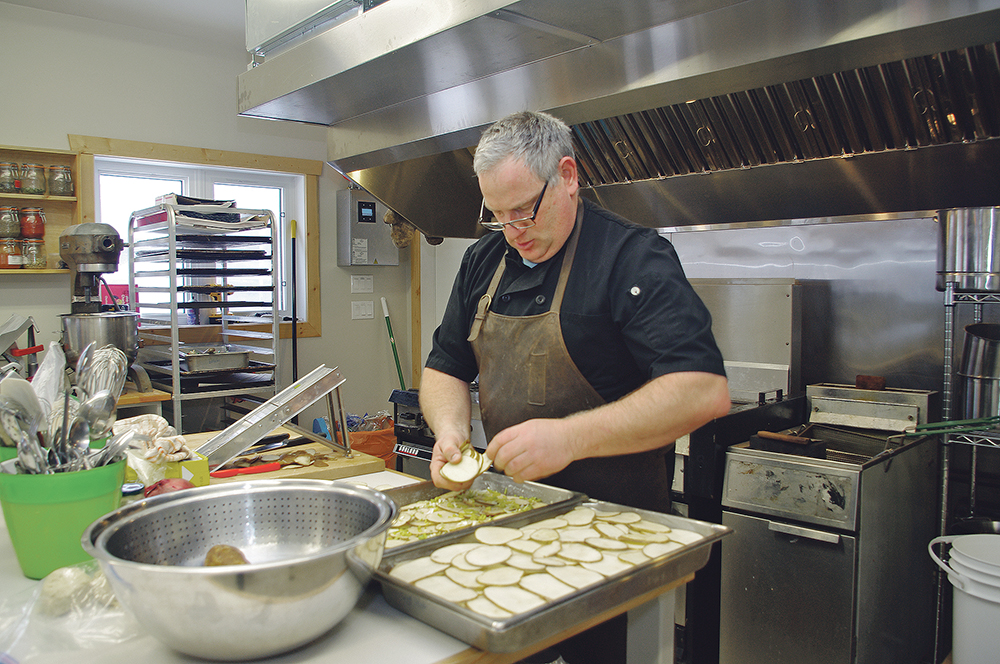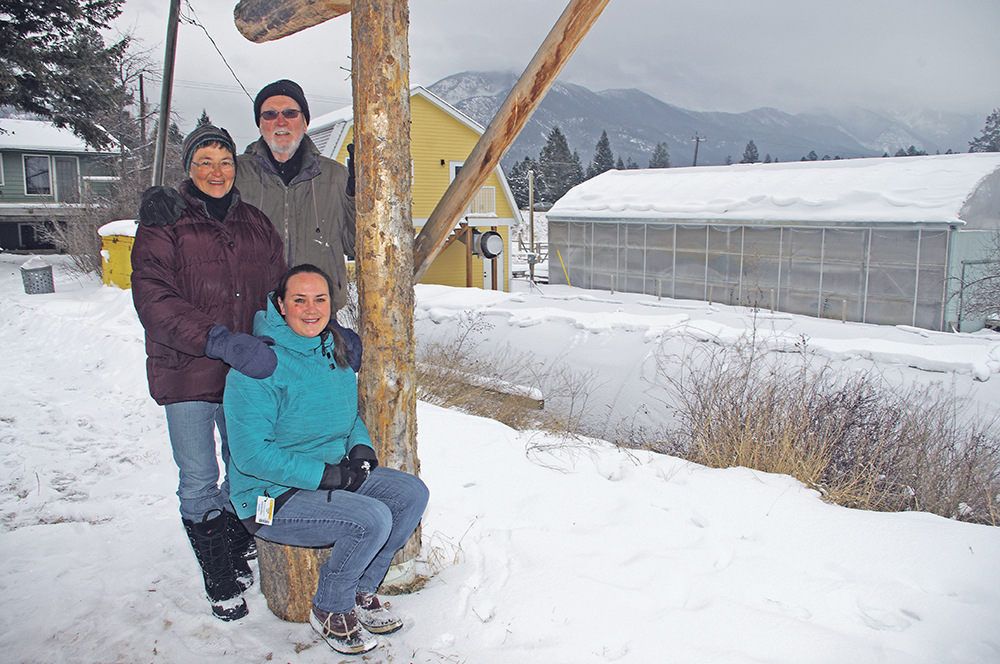WINDERMERE, B.C. — The tiny begonias emerging under grow lights could pass for almost any of the bedding plants started at the Winderberry Farm.
Glenda Wah, her husband, Jack Steedman, and their daughter, Anna Steedman, plant these seeds before Christmas in a basement on their farm in B.C.’s East Kootenays before transferring them to a nearby heated greenhouse.
“It’s easier to heat in the winter,” said Wah, noting the greenhouses use propane because natural gas is not available.
They hand seed their annuals, preferring that to the plugs more commonly used in the greenhouse business.
Read Also

AgriStability updates offer stronger support for farmers
One of the most significant updates to the AgriStability program for the 2025 program year is the increase in the compensation rate.
Their greenhouse business started 34 years ago and has expanded in recent years to include the couple’s daughters and their families. The garden centre business grew to 23,000 sq. feet of greenhouse space from its humble beginnings at 1,000 sq. feet.
Anna, with her chef husband Randy MacSteven, operate Edibles Cafe and Catering on site while Lin and Oliver Egan oversee the Edibles Farm tree nursery and certified organic market gardens.
“We had to diversify when the kids came in,” said Wah, whose garden centre markets everything from hanging baskets and perennials to trees, mulch and fertilizers.
“We are a mom and pop organization and keep it that way but pretty soon, there’ll be no mom and pop, just kids,” she said, smiling.
“We will stay involved as long as we’re able. We will always want to have our hands in the dirt in some way.”
Jack, who is regarded as the Jack- of-all-trades, dabbles in maintenance and repairs as needed.
“I take care of the grandkids and the chickens,” he said.
The couple’s passion for plants is shared by Anna.
“I like the lifestyle too,” she said.
Wah called the greenhouse and nursery the “bread basket” of the business.
The Egans started a community supported agriculture program for 30 families in Camrose, Alta., and also get honey from a local beekeeper.

Chef Randy MacSteven prepares the menu for Edibles Cafe and Catering. | Karen Morrison photo
Lin Egan has used her degree in sustainable agriculture to grow produce organically out of concern with the larger scale food system.
“We believe in healthy soil, healthy food and in order to do that, you have to care for the ground you are growing the food in,” she said.
That includes the use of green manure, cover cropping, composting and farming without chemicals, pesticides or herbicides.
“We don’t use them because they are terrible for the environment, harmful for insects and kill the soil microbes, not to mention harmful for our health,” said the mother of two boys.
The farm received its organic certification three years ago.
“Being organic doesn’t change how we market really, but it does give us the credibility and trust that customers are looking for now,” said Lin.
“Knowing your farmer and how they farm is important in engaging with your food system.”
Wah said their business focuses more on lifestyle than big returns.
“Working with plants and soil is quite pleasant,” said Jack.
“We make enough to go have a comfortable lifestyle,” said Wah.
The rise of large chain stores selling plants in the area has cut into their business and made it necessary to diversify, they agreed, citing their steady business in loyal and repeat customers.
That includes sales to a number of large commercial customers, including municipalities, golf courses, villages and hotels.
Their region’s population of 6,000 swells to around 30,000 during the summer. That means a changing group of travellers from big cities who are used to more varied and larger selections. They counter that by offering customer service and expertise, they say.
“It takes a while to build that reputation,” said Anna. “If we don’t know the answer, we’ll find it.”
They make use of more than 10 acres of land and have fences to keep wildlife from damaging field crops.
They hire 12 people seasonally, some of whom have been here for decades.
“It’s a pleasant work environment and we are not task masters,” said Wah, citing the happy hour held every Friday for workers.
“We have an appreciation for what an employee brings to the business.”
Future plans include expanding the cafe’s in-house and take-out meal business. The cafe has participated in food promotions with local chefs and buys from farms around Cranbrook and in the Okanagan.
This day, MacSteven prepares food for a catered event. Vegetable peelings are gathered in a pail, ready to be composted or fed to chickens.
“I am one of the most fortunate chefs in the valley as part of a sustainable community,” he said.
“If I need anything, I can go out to the garden and pull it.”















